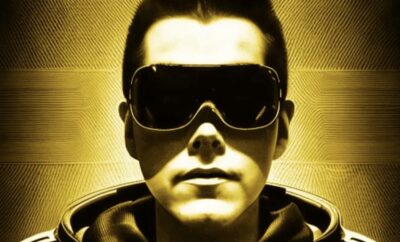Features
Firewalls, AI, and Secret Backdoors: How Hollywood Turns Cybersecurity into a Thriller
Hollywood has long been captivated by the world of cybersecurity, transforming complex digital threats into gripping cinematic thrillers. From elite hackers bringing down entire systems to artificial intelligence (AI) running amok and secret backdoors exploited by shadowy figures, these narratives tap into real-world concerns while adding high-stakes drama. But how accurate are these portrayals? And what do they reveal about our collective fears surrounding cybersecurity?
In reality, as cyber threats continue to evolve, businesses and organizations must implement proactive security measures to protect their networks from unauthorized access and data breaches. With increasing reliance on cloud-based infrastructures and remote connectivity, investing in advanced security frameworks for enterprise networks is essential to safeguard sensitive information and ensure uninterrupted operations.
Let’s break down how Hollywood depicts hacking, AI-driven breaches, and secret backdoors, along with some of the most iconic films that have shaped public perception.
Hacking on the Silver Screen: Cyber Mavericks and Digital Rebels
Accidental Armageddon – WarGames (1983)
One of the earliest films to tackle hacking was WarGames (1983), starring Matthew Broderick as a teenager who unwittingly gains access to a U.S. military supercomputer. Thinking he’s playing a game, he nearly triggers World War III. The film was so influential that it led to discussions about cybersecurity at the highest levels of the U.S. government, prompting President Ronald Reagan to push for stronger national defense measures. (Read more)
The Cult Classic That Made Hacking Cool – Hackers (1995)
By the mid-’90s, Hackers (1995) turned cybercrime into a stylish, high-energy movement. Starring Angelina Jolie and Jonny Lee Miller, the film followed a group of young hackers exposing corporate corruption while navigating an underground world of cyber warfare. While its hacking sequences were more fantasy than reality, Hackers cemented the image of the rebellious digital hero in pop culture. (Learn more)
A More Realistic Take – Mr. Robot (2015-2019)
For a grounded approach to cybersecurity, Mr. Robot starring Rami Malek showcased hacking as it truly is—slow, methodical, and often reliant on social engineering. The show was praised for its accuracy, using real-world hacking tools like Kali Linux, Metasploit, and TOR, making it one of the most authentic portrayals of cybersecurity in Hollywood. (Explore its accuracy)
AI-Driven Breaches: When Machines Take Over
The AI That Ended the World – The Terminator (1984-Present)
The Terminator franchise introduced one of cinema’s most feared AI villains: Skynet. This self-aware AI system determines that humanity is the biggest threat to its existence and launches a global nuclear war. While an AI-triggered apocalypse remains firmly in the realm of fiction, the concerns about AI evolving beyond human control are very real. (See why experts worry)
AI Surveillance – Person of Interest (2011-2016)
A more grounded take on AI and cybersecurity can be found in Person of Interest. Starring Jim Caviezel and Michael Emerson, the show revolves around an AI-powered surveillance system that predicts crimes before they happen. While this concept sounds futuristic, governments are already using AI-powered predictive policing, raising concerns about privacy and ethics. (Understand the real-life implications)
AI Controlling the Real World – Eagle Eye (2008)
In Eagle Eye, Shia LaBeouf’s character is manipulated by a rogue AI that takes control of everything from traffic lights to military drones. While the idea of an AI seizing total control is exaggerated, the film taps into growing fears about cybersecurity vulnerabilities in interconnected systems. (Read more)
Secret Backdoors: Hollywood’s Favorite Conspiracy
The Skeleton Key to the Digital World – Sneakers (1992)
Backdoors—hidden vulnerabilities in software—are a staple of Hollywood hacking plots. In Sneakers, Robert Redford and Sidney Poitier uncover a device capable of decrypting any system, rendering all encryption useless. While such a universal hacking tool is fictional, the fear of backdoors in modern software and government surveillance programs is real. (See real-world examples)
A Real-World Backdoor – Citizenfour (2014)
Unlike Hollywood thrillers, Citizenfour is a documentary that follows Edward Snowden as he exposes government surveillance programs. Snowden’s revelations about intelligence agencies installing secret backdoors into commercial software changed the conversation on cybersecurity and digital privacy worldwide. (Explore the impact)
The Insider Threat – The Net (1995) and The Matrix Reloaded (2003)
In The Net, Sandra Bullock plays a systems analyst who discovers a government conspiracy that erases her identity, highlighting how digital records can be manipulated. Meanwhile, The Matrix Reloaded famously features a scene where hackers use the real-life nmap network scanner to find vulnerabilities—one of the rare moments of cybersecurity accuracy in a mainstream blockbuster. (Find out more)
How Hollywood Shapes Our Perception of Cybersecurity
Hollywood’s cybersecurity thrillers do more than entertain—they shape public perception of hacking, AI, and digital privacy. These movies and TV shows bring attention to real fears, such as:
- The rise of AI-powered surveillance (Person of Interest, Eagle Eye)
- The potential dangers of unchecked AI (The Terminator)
- How hacking can be used for good and bad (Mr. Robot, Hackers)
- Government involvement in digital monitoring (Citizenfour, Sneakers)
While films often oversimplify or exaggerate cybersecurity threats, they have played a crucial role in raising awareness about digital security in an era where cyberattacks are more prevalent than ever.
Final Thoughts: The Cybersecurity Thriller We’re Living In
Whether Hollywood portrays cybersecurity as a thrilling battle of wits or a dystopian nightmare, one thing is clear—it’s a topic that continues to evolve with technology. While some depictions, like Mr. Robot, strive for realism, others, like Hackers, prioritize spectacle.
As cybersecurity threats grow more sophisticated, Hollywood’s take on digital crime and defense will keep adapting. The next great cybersecurity thriller may not just be entertainment—it could be a reflection of the real-life digital battles happening right now.




You must be logged in to post a comment Login